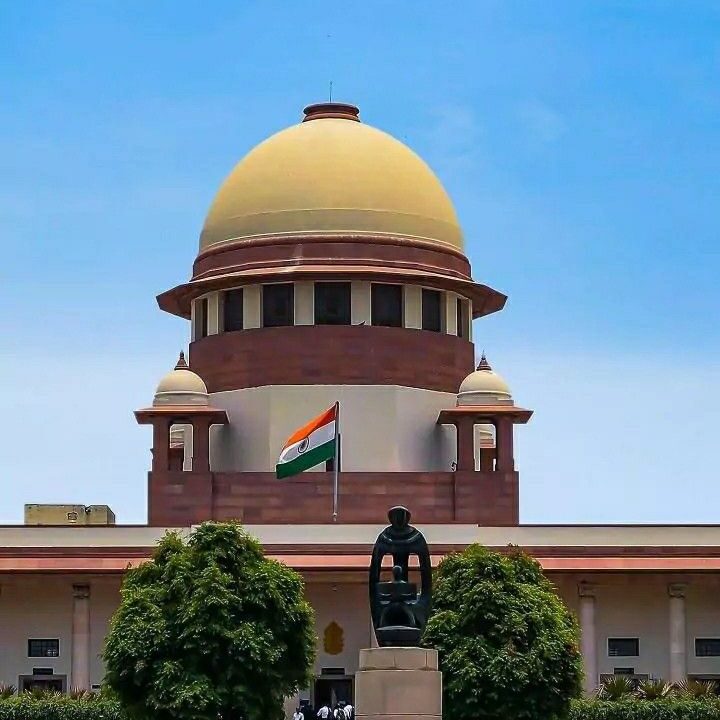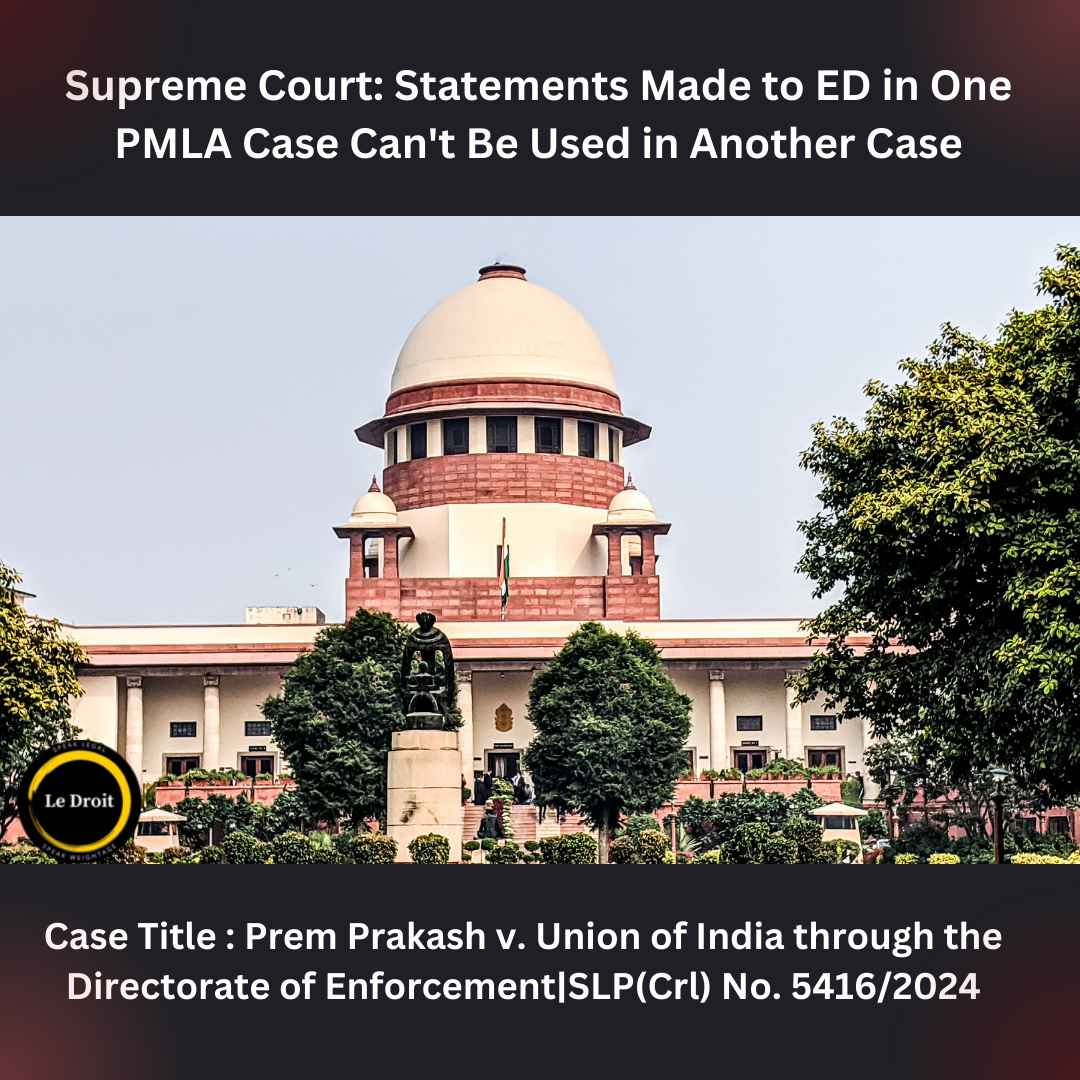
The Supreme Court bench of Justices B.R. Gavai and Prashant Kumar Mishra ruled that statements made to the ED in one PMLA case cannot be used as evidence in another.
Facts:
The case in question involved an individual who, while being interrogated by the ED under the PMLA, made a statement that could potentially incriminate him in another ongoing investigation under the same Act.
Court’s Findings:
It was observed by the Supreme Court that protection from being compelled to be a witness against oneself is provided to every individual under Article 20(3) of the Constitution of India. It was stated that any statement obtained under duress or coercion while in custody cannot be treated as voluntary. Therefore, such a statement should not be admitted as evidence in another PMLA case against the same accused.
Implications of the Judgment:
This judgment is significant as it underscores the importance of constitutional protections for individuals, even in cases involving economic offenses such as money laundering.
Legal Experts’ Views:
Legal experts have welcomed the judgment, considering it a necessary check on investigative agencies’ powers. They argue that while the PMLA aims to curb financial crimes, it must not do so at the cost of individual rights guaranteed under the Constitution.
Conclusion:
The Supreme Court’s decision reaffirms the principle that the rights of the accused must be safeguarded against potential misuse of authority by investigative agencies.
Case Title : Prem Prakash v. Union of India through the Directorate of Enforcement|SLP(Crl) No. 5416/2024
JOIN CERTIFICATE COURSE ON PREVENTION OF MONEY LAUNDERING ACT-CLICK HERE

